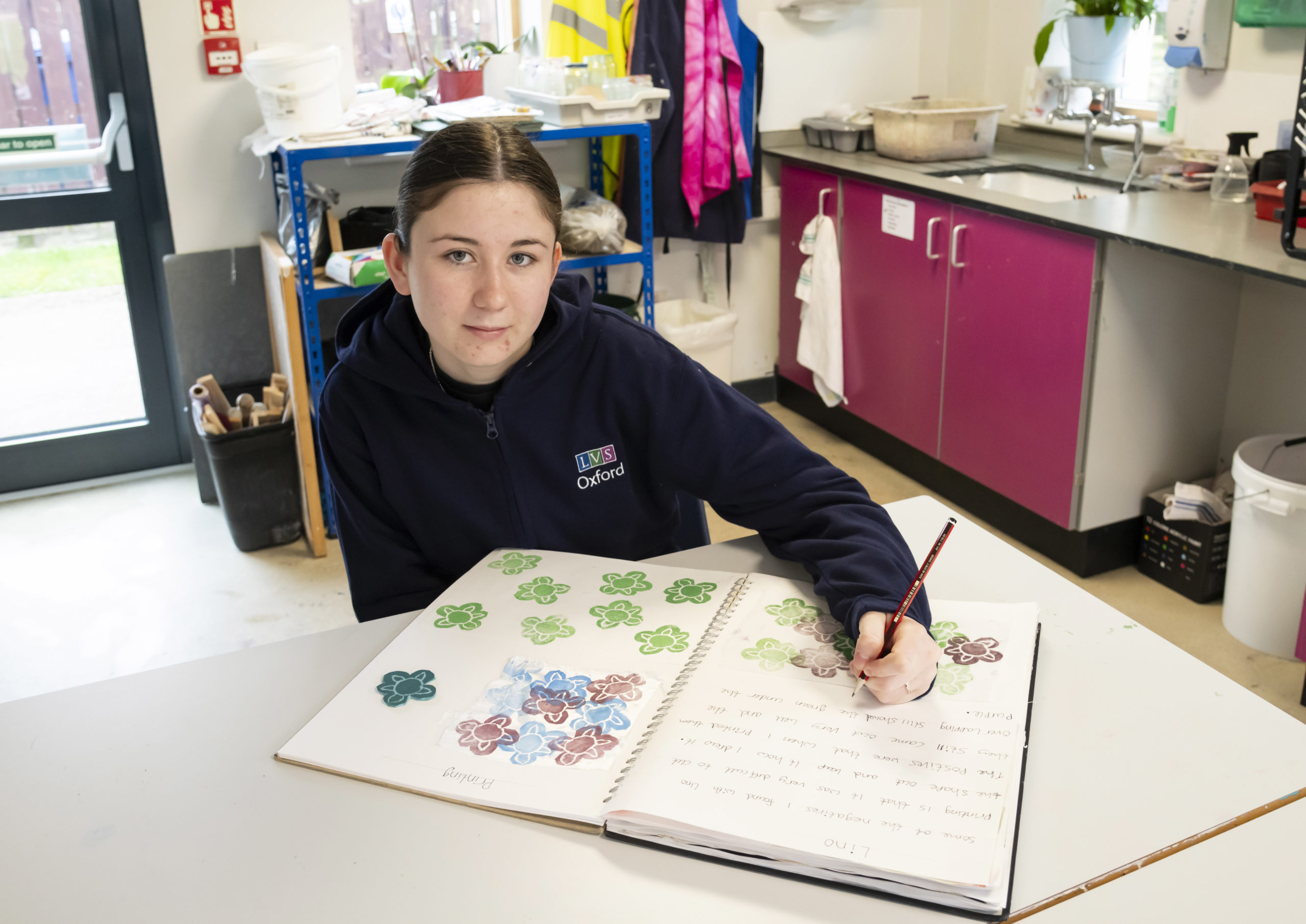
Taylor
“I’ve made a lot of progress since I joined LVS Oxford,” says Taylor, who is aged 14 and currently in Year 10. Taylor, who joined the school in Year 7 from a mainstream primary school, adds: “When I look back at my old reports, I realise how far I’ve come, especially in English and maths, which were subjects I used to really struggle in.”
She continues: “Here we have slow lessons, where we work at our own pace and at the level we are on. We’re not all doing the same thing at the same time, because we’re allowed to study at our own speed. I remember how in the past, when I struggled in my primary school, I would start to feel overloaded and I’d end-up walking out of class – then I’d be called naughty. Here, it’s such a good environment to learn, as we’re allow movement breaks and to take a moment in class when we need it, or we can just ask the teacher to slow down, which they will do.
“My reports have been amazing since I came here and I feel like I’m getting a good education.”
“Everyone is understanding. I’m so happy to be here, as my other option for secondary education was a mainstream school – where class sizes are big and there would be a lot of people in one place. I struggle being around groups of people,” she says.
Taylor also enjoys the PE class and particularly enjoyed a recent lesson in soft archery. “We get to do lots of different activities in PE, including games like dodgeball, and it’s always nice to get outside and to be with others,” she says.
“My reports have been amazing since I came here and I feel like I’m getting a good education and I will be able to achieve what I want to do,” says Taylor, who says she would like to work in childcare. “I’d like to do well in maths, English and science, as these are the main subjects I will need going forward.”
In addition to the core subjects, LVS Oxford equips students with the skills they will need for life, says Taylor. “It has been really good to learn how to cook, and about the different methods of cooking. We also have lessons about employability, which help us understand the skills future employers will be looking for.”